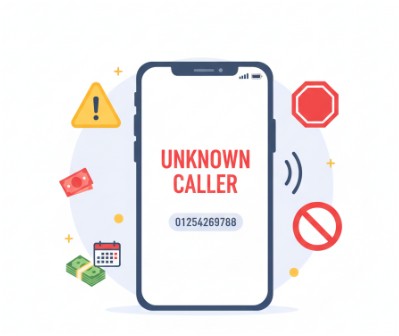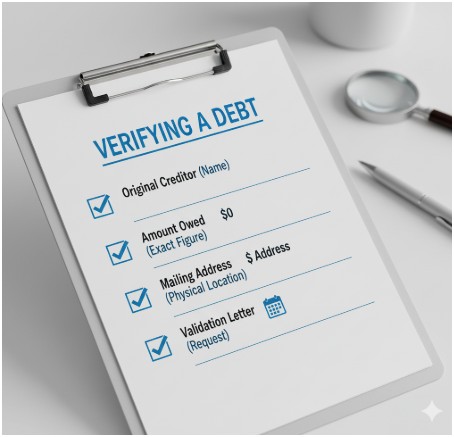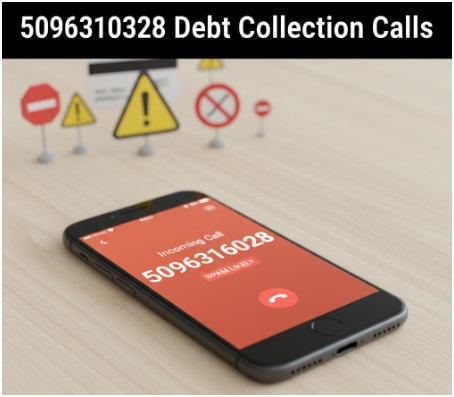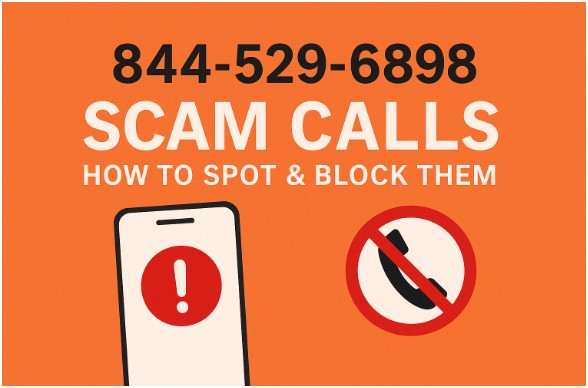I’ll be honest with you. The first time I saw 5096316028 pop up on my phone, my stomach dropped. I didn’t recognize the number, but something about the string of digits felt official, almost intimidating. Against my better judgment, I answered.
A calm voice claimed to be calling on behalf of Portfolio Recovery Associates. The kicker? They even used names like “Denise Crowley” or “Felicia Rank” to sound more legitimate. That was the moment I realized I had to be extra careful.
Like many of you, I’ve dealt with unexpected calls about money, and I know how overwhelming they can feel. So instead of panicking, I decided to get smart about what this number was really about, and how to protect myself.
What Is 5096316028 and Why Does It Keep Calling?

If you’ve seen 5096316028 flash on your phone, chances are it’s linked to debt collection calls. Services like YouMail have flagged it as being tied to Portfolio Recovery Associates, one of the biggest debt buyers in the U.S.
Now, before you jump to conclusions, here’s the tricky part: scammers also use this number or pretend to be from Portfolio Recovery. That means even though PRA is a real company with an A+ BBB rating, not every call you get in their name is legit. Some callers may try to scare you into paying immediately by threatening lawsuits or damage to your credit.
The truth? A real debt collector has rules they must follow. If the call feels shady, it probably is.
How Do You Know If a Debt Collector Is Legit?

When I first answered a call from 5096316028, I asked myself: “Is this real or just another scam?” Here’s what I learned. A legitimate debt collector must provide:
- The name of the original creditor
- The exact amount you owe
- A physical mailing address
Even more importantly, under the Fair Debt Collection Practices Act (FDCPA), they must send you written validation of the debt within five days of your request. If they refuse or dodge your questions, that’s a huge red flag.
I also double-checked my credit report at AnnualCreditReport.com. That gave me peace of mind because I could see if there was any record of the supposed debt.
What Should You Do If 5096316028 Calls You?
When your phone lights up with 5096316028, here are some steps I personally recommend:
First, don’t share personal details. No Social Security number, no credit card info, nothing. If it’s real, they don’t need you to confirm all that over the phone.
Second, ask questions. Who’s the original creditor? How much do I owe? Can you mail me validation of this debt? Legitimate companies answer without hesitation.
Third, consider blocking the number. If the calls keep coming and you’re sure they’re harassing, send a cease and desist letter by certified mail. That forces them to stop calling, though they can still pursue legal avenues if the debt exists.
And finally, report shady behavior. The FTC at ReportFraud.ftc.gov and the CFPB are there to help when scammers cross the line.
Why Do They Use Different Names in Their Messages?
That was one of the strangest parts of my experience. One day the voicemail said, “Denise Crowley with a message from Portfolio Recovery.” Another time it was “Ishan Gurung.” Then “Felicia Rank.”
Hearing different names every time made me wonder if they were even real employees. Scammers often use rotating names to sound professional or to make it harder for you to track them. Sometimes even legitimate agencies rotate collectors, which adds to the confusion.
My rule of thumb? I don’t trust a call based on the name alone. I need written proof, not just a friendly voice telling me to pay up.
How Can You Protect Yourself Long-Term?
Dealing with 5096316028 taught me that you need a strategy, not just a reaction.
One thing I’ve done is set up call-blocking apps like RoboKiller or Hiya. They filter out known scam numbers so I don’t get bombarded. I’ve also built the habit of letting unknown numbers go to voicemail. If it’s real, they’ll leave a message (and I’ll still check it cautiously).
Another safeguard is keeping an eye on my credit. By checking it regularly, I know exactly what debts are on my record and can spot anything that seems off. That way, if someone tries to trick me, I already know the truth.
FAQs About 5096316028
Is 5096316028 always from Portfolio Recovery Associates?
Not always. While YouMail links the number to PRA, scammers also spoof it. That means even if the caller says they’re PRA, you should confirm through written validation and your credit report.
What should I do if they threaten legal action?
Stay calm. Scammers love to use threats. A legitimate collector can pursue legal action, but they can’t just scare you into paying immediately. Ask for documentation. If they refuse, it’s likely a scam.
Can I stop 5096316028 from calling me?
Yes. You can block the number on your phone and also send a certified cease and desist letter to the agency. Once received, they are legally required to stop calling, though they may still use the courts to collect.
How do I report suspicious calls from this number?
You can file complaints with the FTC at ReportFraud.ftc.gov or with the Consumer Financial Protection Bureau. Reporting helps track and shut down scam operations.
Final Word: Don’t Let 5096316028 Rattle You
Here’s the truth: getting a call from 5096316028 feels jarring, but it doesn’t have to control your day. I’ve learned that knowledge is the best defense. Once you understand your rights and know how to spot scams, the fear factor disappears.
So the next time that number pops up, don’t panic. Stay calm, ask for proof, and trust your instincts. Protecting your financial health is worth more than answering a pushy call.
And if you’re like me, you’ll probably end up feeling empowered instead of intimidated. Sometimes the best move is simple: block the number, brew a coffee, and get back to living your life.




